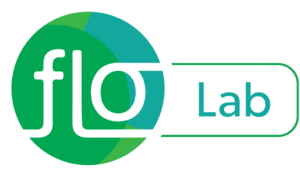The shift into (and reliance on) online learning and teaching in the past two years due to pandemic-related restrictions has highlighted the need for improvements to accessibility in digital environments.
restrictions has highlighted the need for improvements to accessibility in digital environments.
During this three-hour experiential and interactive FLO Lab, your FLO facilitators will underscore what digital accessibility is and why it matters (not just for students with disabilities but all students) and how educators can ensure their online learning environments and experiences are as accessible as possible.
Through information sharing and interactive activities, you will learn more about two frameworks (POUR and Universal Design for Learning [UDL]) to guide you through the accessible design process. You will come away from the session with the ability to practically apply these frameworks to your online learning contexts by participating in case-study collaboration, discussion, and reflection. Session materials will be shared one week in advance.
Learning Outcomes
- Participants will develop compassion for and understanding of people with disabilities and identify some of the challenges people with disabilities encounter in online environments.
- Participants will be able to define digital accessibility and discuss relevant guidelines, policies, and resources to support improvements in the accessibility of their own digital content.
- Participants will build an accessibility skills and strategies toolbox that includes the POUR framework, UDL principles and guidelines, and other design considerations.
- Participants will generate and share ideas for how they can improve the accessibility of online learning environments by applying digital practices, the POUR framework, and UDL principles to case scenarios.
Fizza Haider (she/her) is a learning experience designer who focuses on the accessibility of teaching and learning environments and materials at the University of Victoria (UVic). With a master’s degree in educational psychology, she taps into her understanding of evidence-based instructional strategies and frameworks such as UDL to develop training workshops and resources to guide diverse audiences in the application of accessible design principles to lesson and course planning. Her areas of research include inclusive education, teacher education and training, teacher self-efficacy, school leadership, and assistive technology. She received the G.M. Dunlop Distinguished Contribution Award from the Canadian Association for Education Psychology in May 2022 for her master’s research exploring factors that influence beginning teachers’ self-efficacy for inclusive practice. Over the past few years, Fizza has taught and assisted in teaching courses offered as part of the special and inclusive education programs at UVic (certificate and diploma). Prior to that she worked as an assistive technology and academic supports specialist at Georgia State University, assessing student needs for academic accommodations and recommending assistive-technology training and solutions for students.
Melissa Doyle (she/her) is a learning experience designer who focuses on the accessibility of teaching and learning environments and materials at UVic. After spending time in the STEM field, she joined UVic in 2006 as a microbiology laboratory instructor and has since supported students and colleagues as an experiential learning officer, then as an educational technology support specialist. Having worked in different portfolios, combined with additional studies in adult education, online learning, and career development, she has developed an astute understanding of the needs and priorities of diverse clients. This insight allowed her to innovatively problem solve and support campus stakeholders during the challenges of the pandemic. Some of her recent achievements include the pilot initiative of an online assessment room to support students with accommodations or short-term absences and supporting the implementation of a new learning management system along with other technologies. Melissa’s professional interests include inclusive learning and assessment strategies, accessible digital content creation, and educational technology; her non-academic interests include scent-detection work with her 75-pound goldendoodle “puppy,” Damon Galgut novels, and video games.
This FLO Lab has a non-refundable registration fee of $25.
Register now!
This notice is to inform you that this session will be recorded, archived, and made available publicly on BCcampus.ca. By participating in this session, you acknowledge that your participation in this session will be recorded and the recording will be made available openly.
